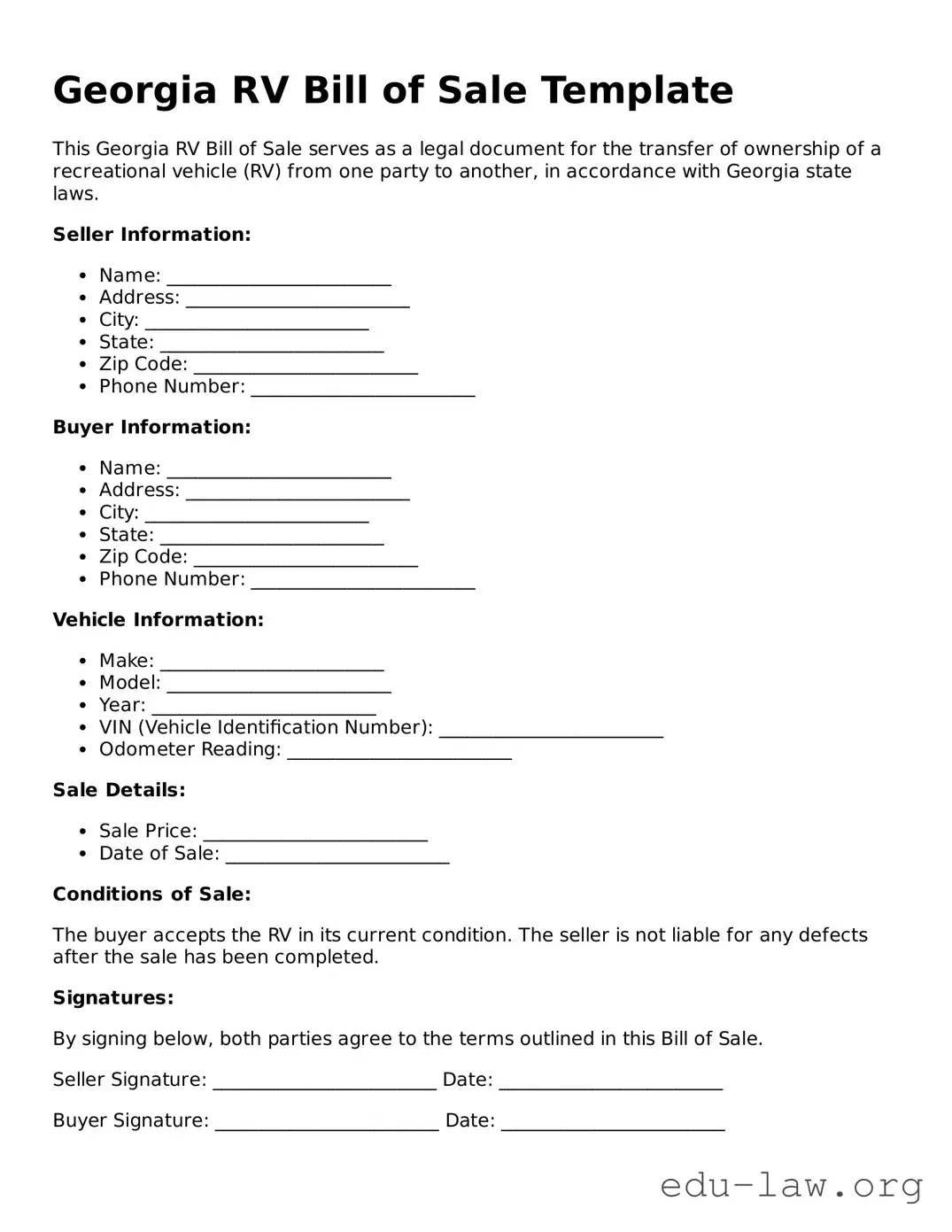What is a Georgia RV Bill of Sale?
A Georgia RV Bill of Sale is a legal document that records the purchase and sale of a recreational vehicle (RV) in the state of Georgia. This form includes crucial details such as the buyer's and seller's information, vehicle identification number (VIN), make and model of the RV, and the sale price. It serves as proof of ownership transfer and provides both parties with protection in case of disputes.
Why is a Bill of Sale important for buying an RV in Georgia?
The Bill of Sale is vital because it protects the interests of both the buyer and the seller. For buyers, it verifies the transaction and proves ownership of the RV. For sellers, it establishes that the transfer of ownership has occurred, which can be beneficial if there are disputes regarding liabilities after the sale. Additionally, this document may be required by the Georgia Department of Revenue when applying for a title and registration.
Do I need to notarize the Bill of Sale?
Notarization is not required for an RV Bill of Sale in Georgia. However, getting the document notarized is a good practice as it adds a layer of authenticity. A notary public can confirm the identities of both parties and witness the signing of the document, which can be useful if there are disputes in the future.
Can I use a generic Bill of Sale form for my RV sale?
While you can use a generic Bill of Sale form, it is highly recommended to use a specific RV Bill of Sale template designed for Georgia. This ensures that all required fields are included, helping to avoid potential issues during the registration and titling process. Tailoring the form for recreational vehicles guarantees that all necessary information is adequately covered.
What information should be included in the Bill of Sale?
A comprehensive RV Bill of Sale should include the following details: the full names and addresses of both the buyer and the seller, the date of the sale, a detailed description of the RV (make, model, year, and VIN), the purchase price, and any additional terms or conditions regarding the sale. Including both parties' signatures at the end of the document is crucial for validation.
Is a Bill of Sale enough to register my RV in Georgia?
While the Bill of Sale is an essential part of the registration process, it is not the only document you will need. You must also provide proof of identity, the current title (or an Application for Title if the title isn’t available), and payment for any applicable taxes and registration fees. Once you have all the necessary documents, you can apply for registration at your local county tag office.
What if there is a lien on the RV I'm buying?
If there is a lien on the RV, it is crucial to address this before completing your purchase. The seller should disclose any lien information on the Bill of Sale, and it's advisable for the buyer to obtain a lien release from the seller at the time of sale. This protects the buyer from assuming any financial obligations tied to the vehicle. Always ensure that the title is clear, meaning that no liens are outstanding, before finalizing the sale.
